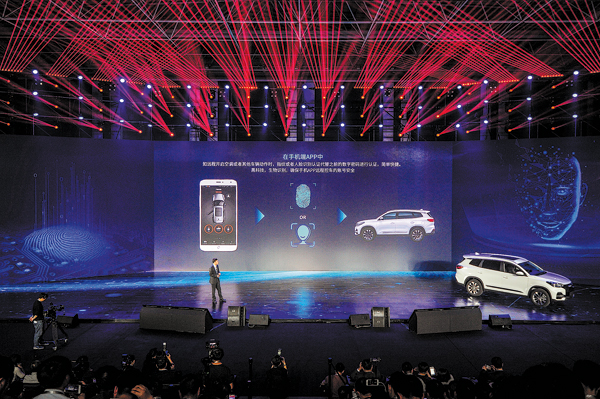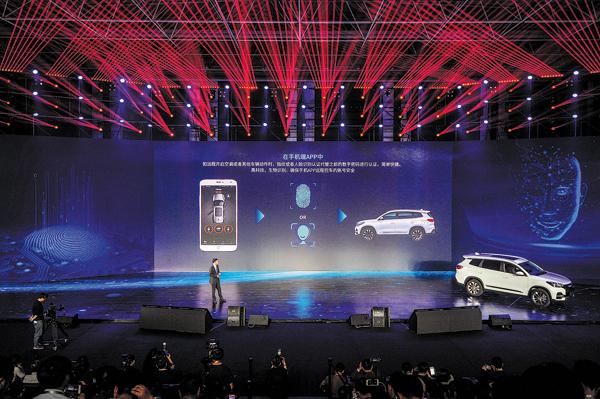
BEIJING, Apr.23 (Xinhua)-- Chinese carmakers are continuing to make progress in the development of intelligent connected vehicles by leveraging the domestic market's preference for high-tech functions and more premium brands.
Two domestic automakers announced their intelligent development strategy on Wednesday in Beijing. The companies will use Baidu Inc's Apollo platform in their latest products which were launched at the event.
Chery Automobile revealed its CheryLion intelligent development plan, and launched its first smart model Tiggo 8, a mid- to large-size sport utility vehicle.
Dongfeng Motor's passenger vehicle brand Dongfeng Fengguang's iX5 smart crossover model was also launched at the same event.
"We will keep upgrading very frequently, and we will progress with our intelligent manufacturing," Chen Anning, general manager of Chery Automobile, told China Daily.
Chen Anning said, "China is leading the world in intelligent manufacturing. The slow motion in refreshing car models is not an approach in the intelligent era.
"The international giants' five-to-10-year duration between each generation of models won't fit into today's customer needs, while user behaviors are evolving very fast."
Chinese OEMs have setup meaningful levels of automation, that is, integrated well coordinated automation can be titled as having the most intelligent systems in place, according to Michael Adick, managing director, auto industry, Accenture Greater China.
He told the reporter, "Chinese companies are in general in the forefront of innovation and intelligent development. The challenge is the meaningful integration of distal intelligent solutions and automation.
"The next level of this intelligent production system is the digital Integration of the whole supply chain."
Zhu Guohua, executive director of Chery Automobile's intelligent vehicle business unit, said the manufacturer will upgrade its entire value chain through digitalization and intelligent technologies.
"CheryLion is a platform across all functions and values that will not only benefit our manufacturing side, but also cover the customer side from more flexible orders to meet individualized demands," he said in a group interview.
Baidu Inc announced its Apollo project last year. It is an open autonomous driving platform, and the internet giant claims it has gained more than 90 partners for the platform so far.
Chinese automotive executives have continued to highlight connectivity and digitalization as a key priority, followed by the increased adoption of big data analytics to create value, according to a KPMG's Global Automotive Executive Survey 2018.
Global consultancy Deloitte discovered in earlier research that Chinese car makers enjoy an advantage in these fields because they work in a progressive way with technology companies.
Deloitte also found that Chinese customers perceive the brands and vehicles with such technologies as more premium than those that don't.
On Thursday in Chongqing, State-owned car maker Chongqing Changan Automobile joined hands with Tencent Holdings, another Chinese internet giant, in developing intelligent and connected vehicles.
Zhu Huarong, president of Changan Automobile said it was an inevitable trend that connectivity and cloud computing inject new power to the automobile industry, and that vehicles in the future are set to be more intelligent.
Industrial insiders have said that local car makers are trying to lure customers with the cutting-edge technologies for the younger generation who appreciate gadgets. "Chinese brands provided tech equipment without extra charge, before international giants discovered it's an effective approach to catching the eyes of younger customers," said Li Qingwen, president of the Car-Bingo Academy.
"Chinese carmakers have surveyed customers and know they like them," he added.
Equipment that is currently popular includes tablets, connectivity, voice control and remote control in mobile phone apps. Overseas auto brands are following the lead of Chinese carmakers in offering some of these gadgets in their standard models.
Surveys show that the average age of Chinese customers is below that of most major overseas markets, they are early adopters of new technologies and tend to replace the car at shorter intervals. (Source: China Daily)




 A single purchase
A single purchase









